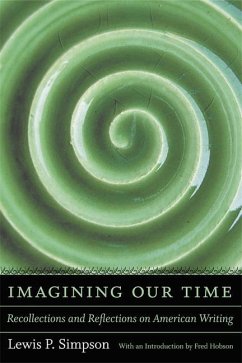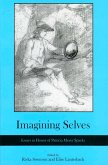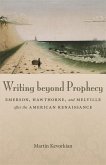Lewis P. Simpson towers among scholars of American literary studies, as an intellectual historian of the South and American literary culture and a revered essayist. His last book, Imagining Our Time, offers a wide-ranging, erudite, and enlightening look at the culture of letters in American society. Primarily through an examination of the works of some of the leading writers of the twentieth century, many of whom Simpson knew intimately, this final volume provides insight into the struggles and concerns unique to prominent American thinkers, literary artists, and critics contemporary to his own lifetime. Often moving from an intriguing anecdote or recollection to a rigorous discussion of ideas, Simpson's style is captivating. He begins with speculation on Eric Voegelin's interest in Julien Benda's polemic La Trahison des Clercs and follows with thoughts on the declining faith in the university as an embodiment of humanistic letters and learning, surveying the American Republic as far back as Benjamin Franklin. In successive chapters, Simpson pays tribute to Malcolm Cowley as a "hero of the literary art" and probes Robert Penn Warren's fixation with Thomas Jefferson as manifested in the writing and complete rewriting of Brother to Dragons. He ruminates on the vocation of the critic as practiced by Lionel Trilling and Diana Trilling, and the literary and cultural politics of the 1930s. Brief portraits of Andrew Lytle and Louis D. Rubin, Jr., appear, as well as a poignant argument for the autobiographical cast of Eudora Welty's writing. A lengthy, riveting consideration of Simpson's friend Walker Percy and Percy's quest for identity as a modern Christian novelist alienated from the society around him forms the core of the volume. Fred Hobson's introduction fittingly rounds out Imagining Our Time, offering an intimate appreciation of Lewis Simpson-who will remain a giant among scholars of southern literary studies.
Hinweis: Dieser Artikel kann nur an eine deutsche Lieferadresse ausgeliefert werden.
Hinweis: Dieser Artikel kann nur an eine deutsche Lieferadresse ausgeliefert werden.








